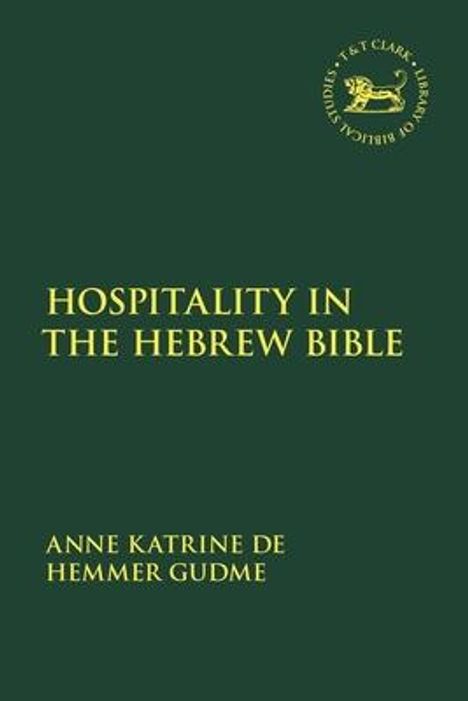Anne Katrine De Hemmer Gudme: Hospitality in the Hebrew Bible, Gebunden
Hospitality in the Hebrew Bible
Lassen Sie sich über unseren eCourier benachrichtigen, sobald das Produkt bestellt werden kann.
- Herausgeber:
- Laura Quick, Jacqueline Vayntrub
- Verlag:
- Bloomsbury Academic, 05/2027
- Einband:
- Gebunden
- Sprache:
- Englisch
- ISBN-13:
- 9780567681843
- Umfang:
- 224 Seiten
- Gewicht:
- 454 g
- Maße:
- 234 x 156 mm
- Stärke:
- 25 mm
- Erscheinungstermin:
- 27.5.2027
- Hinweis
-
Achtung: Artikel ist nicht in deutscher Sprache!
Ähnliche Artikel
Klappentext
Hospitality in the Hebrew Bible is an investigation of the key hospitality texts and narratives in the Hebrew Bible, such as Abraham's visitors in Mamre in Genesis 18, Lot's visitors in Sodom in Genesis 19, and the partly parallel story of the traveling Levite and his pilegesh in Judges 19 . She also includes hospitality scenes with female protagonists, such as Jael in Judges 4, Rahab in Joshua 2, and Lady Wisdom and Lady Folly in Proverbs 9. Gudme applies a historical anthropological approach to these texts as she analyses hospitality in light of classical anthropological themes such as reciprocity, commensality, honor and shame, and patronage structures. The anthropological analysis is supplemented by an intersectional perspective that considers hospitality alongside socio-cultural aspects such as configurations of masculinity, gender roles, and household hierarchies.
Gudme offers a critical and systematic overview of hospitality in the Hebrew bible, including the 'dark sides' of hospitality such as deceit, rape, violence, and murder. Her analysis reveals a complex web of socio-cultural values, in which hospitality is sometimes presented as an ultimate and universal value, sometimes merely as nice-to-have and secondary to other socio-cultural concerns. In all instances, however, hospitality is a recognizable type-scene and as such an ideal backdrop for telling tales, both exemplary and horrific, and an ideal literary tool to characterize both people and deities.





